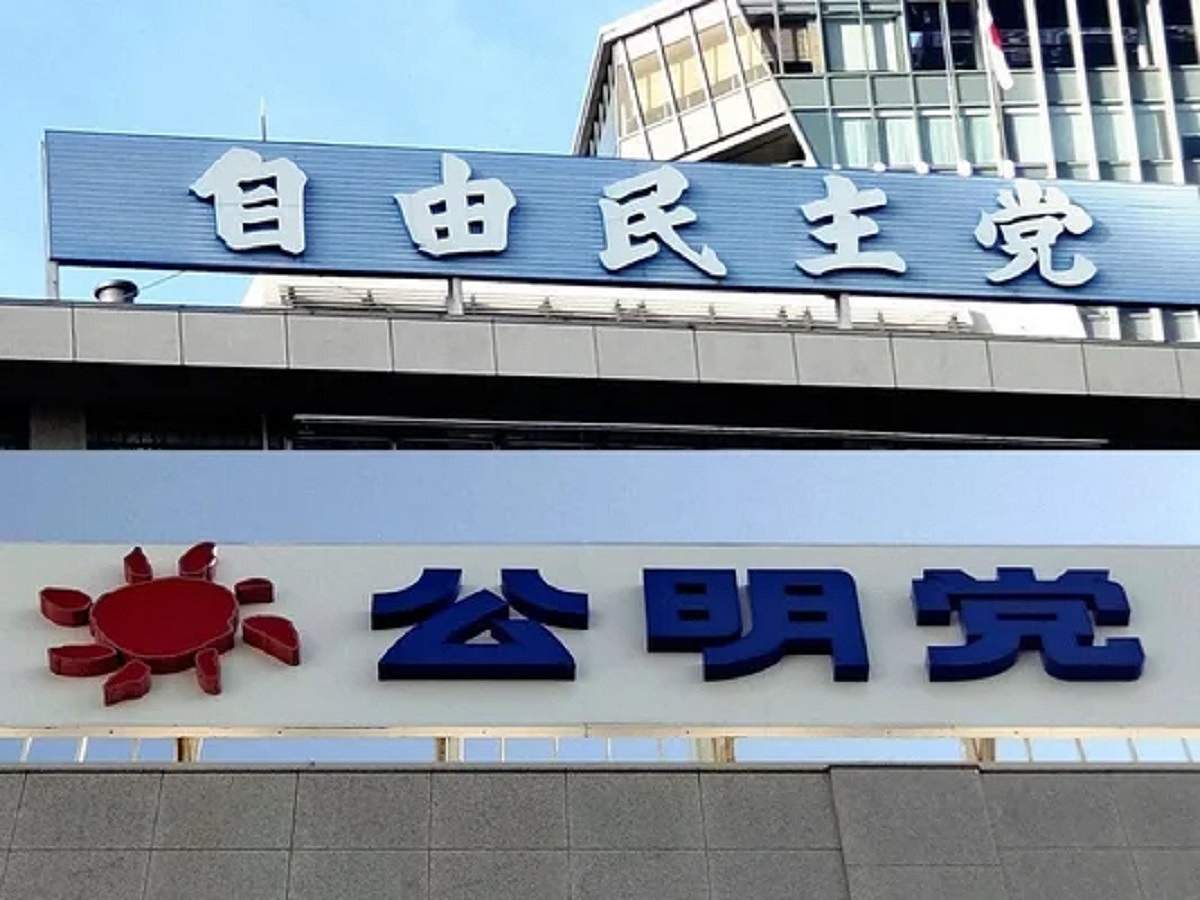Japan’s Ruling Parties LDP, Komeito Considering Push for Consumption Tax Rate Cut; Measures Meant to Directly Reduce Burden on Household Budgets

Liberal Democratic Party, top, and Komeito signs
15:04 JST, April 11, 2025
The ruling coalition parties are considering asking the government to lower the consumption tax rate in a bid to counter rising prices and the impact of U.S. tariffs, The Yomiuri Shimbun has learned.
The Liberal Democratic Party and Komeito would seek to have a lower consumption tax rate applied to food and other items that have been steadily climbing in price.
Komeito Chief Representative Tetsuo Saito talked about new economic measures at a meeting of the party’s Central Secretariat on Thursday.
“The most effective step would be to directly reduce the burden on household budgets and companies by lowering the tax,” Saito said.
Trimming the consumption tax rate would require law amendments. Accordingly, implementing a lower rate will take some time, including the period needed to prepare these legal revisions. Saito also indicated the party should push for cash handouts to focus on quick results.
“Cash refunds alone won’t be sufficient to support people and the long-term effect will be minimal,” Saito said, as he underlined the necessity of cutting the consumption tax rate.
According to Komeito sources, among the ideas being floated within the party are a proposal to lower the consumption tax for a limited time on items such as food.
Some members of the LDP also support lowering the tax rate and believe the party should include achieving this goal among its campaign pledges for this summer’s House of Councillors election.
“We shouldn’t rule out any option, including benefits and tax cuts,” Masaji Matsuyama, secretary general of the LDP in the upper house, said at a press conference Tuesday. “It’s vital that we consider people’s livelihoods and thoroughly address this issue.”
However, many LDP members remain hesitant to lower the consumption tax rate. They include General Council Chairperson Shunichi Suzuki, who said, “This isn’t something we should do. [Consumption tax] is an important revenue source that supports social security.”
The consumption tax was introduced in 1989 at a rate of 3%. The rate was hiked to 5% in 1997, 8% in 2014, and to the current level of 10% in October 2019. Consumption tax accounts for more than 30% of the nation’s tax revenue, making it the government’s largest source of tax revenue. Consumption tax has become a stable source of funds for social security costs, which are ballooning due to the nation’s aging population and low birthrate.
Top Articles in Politics
-

Japan PM Takaichi’s Cabinet Resigns en Masse
-

Sanae Takaichi Elected Prime Minister of Japan; Keeps All Cabinet Appointees from Previous Term
-

Japan’s Govt to Submit Road Map for Growth Strategy in March, PM Takaichi to Announce in Upcoming Policy Speech
-

LDP Wins Historic Landslide Victory
-

LDP Wins Landslide Victory, Secures Single-party Majority; Ruling Coalition with JIP Poised to Secure Over 300 seats (UPDATE 1)
JN ACCESS RANKING
-

Japan PM Takaichi’s Cabinet Resigns en Masse
-

Japan Institute to Use Domestic Commercial Optical Lattice Clock to Set Japan Standard Time
-

Israeli Ambassador to Japan Speaks about Japan’s Role in the Reconstruction of Gaza
-

Man Infected with Measles Reportedly Dined at Restaurant in Tokyo Station
-

Videos Plagiarized, Reposted with False Subtitles Claiming ‘Ryukyu Belongs to China’; Anti-China False Information Also Posted in Japan






















